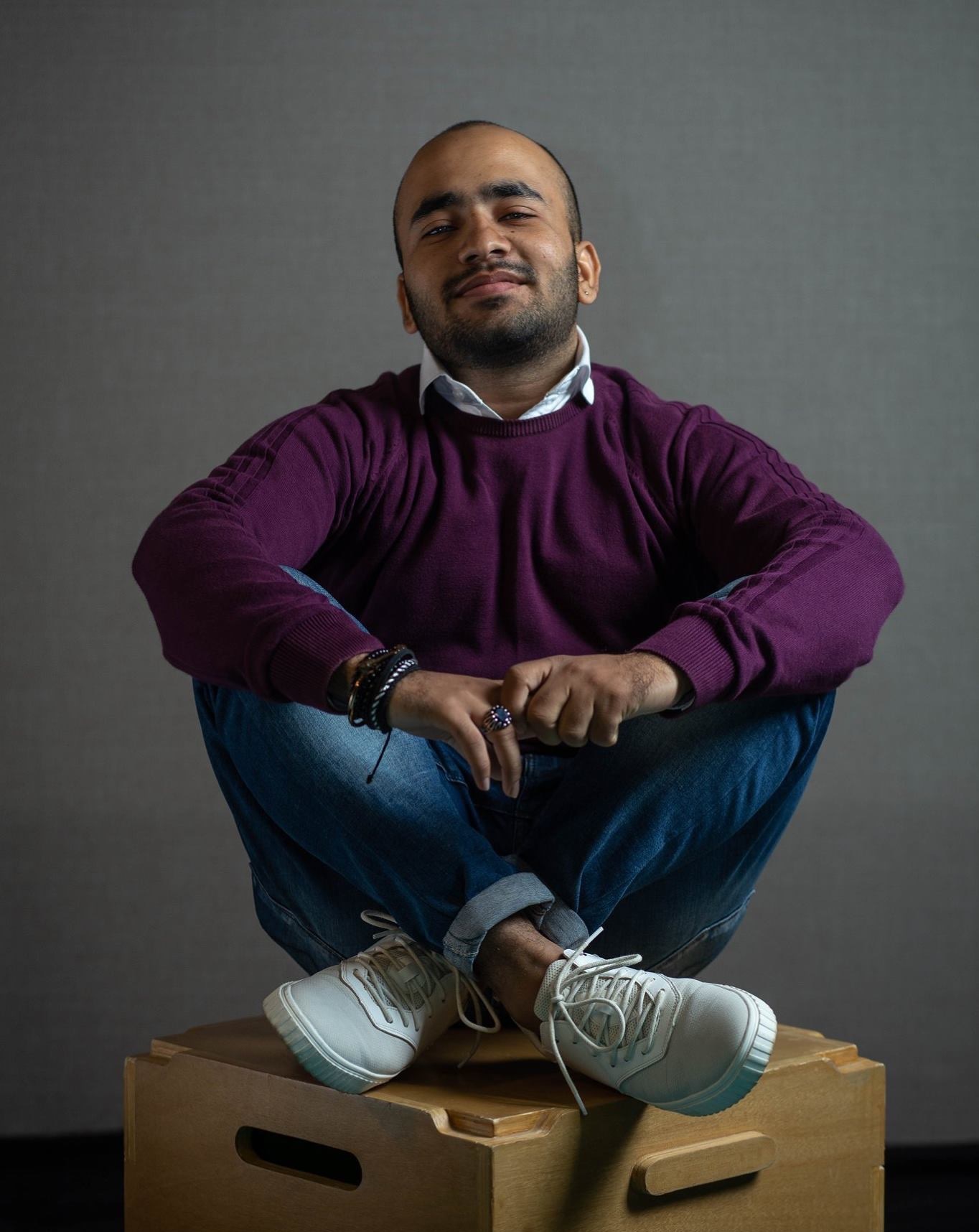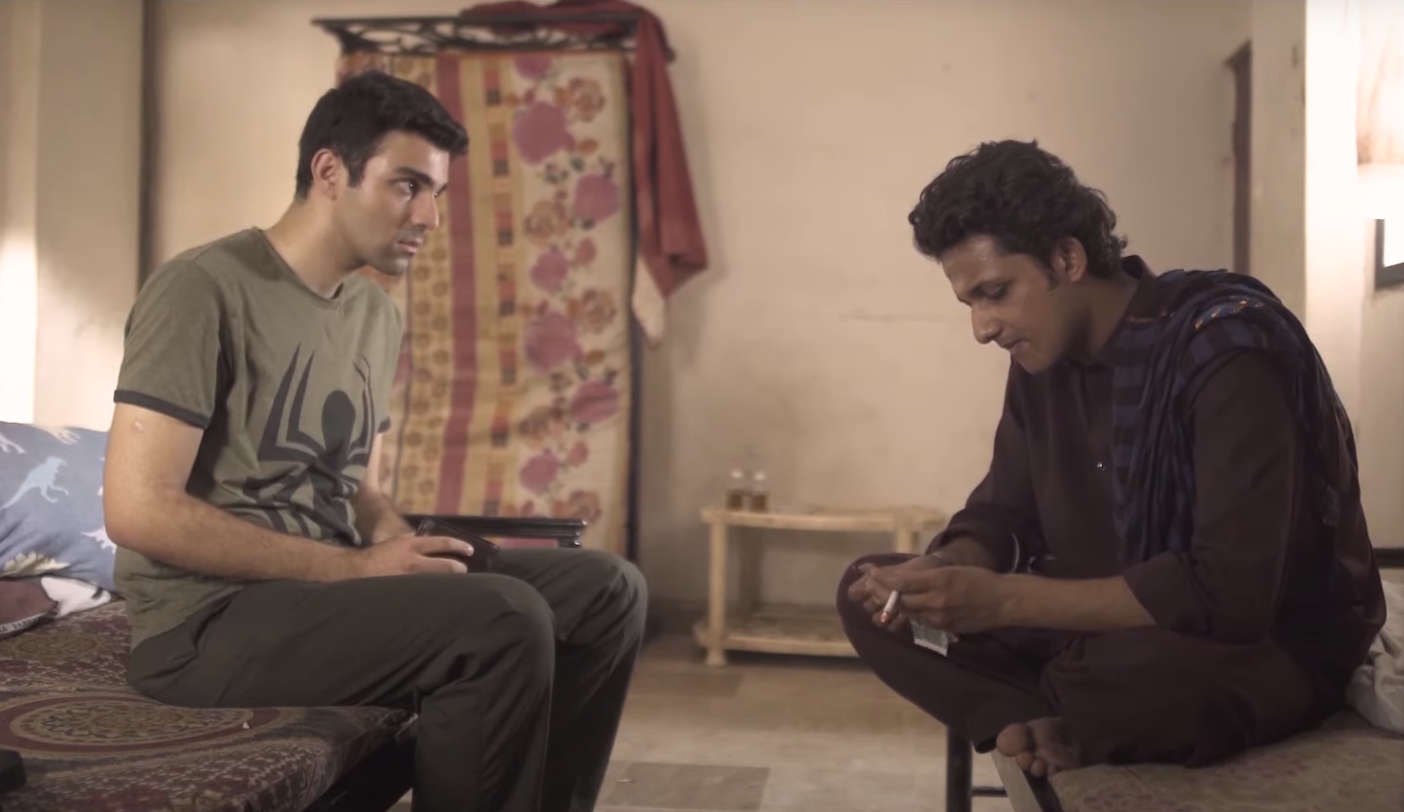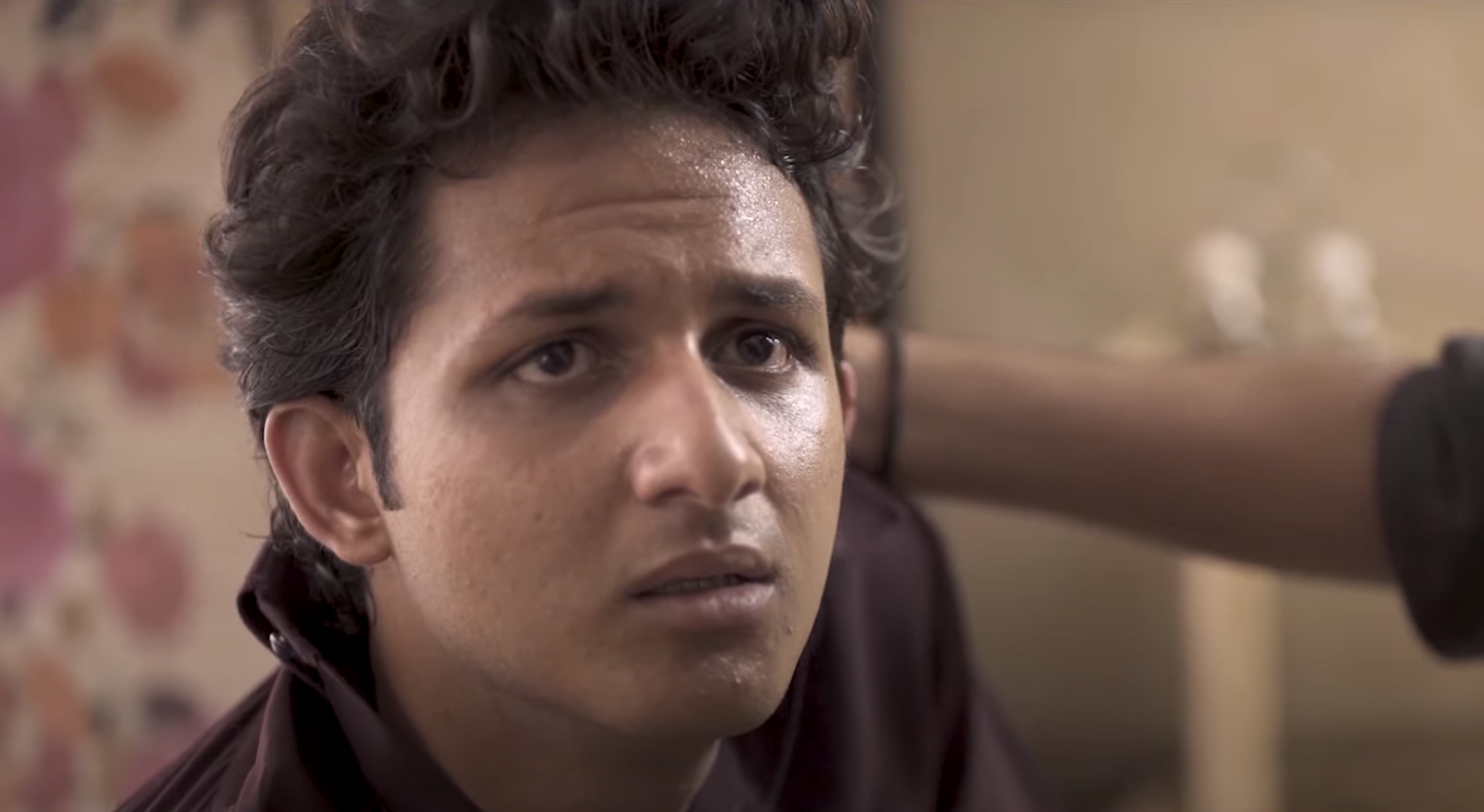Award-winning Pakistani LGBTQ short film takes unflinching look at gay life in South Asia
Exclusive: Director Iqran Rasheed tells Attitude he hopes his work will help move forward the conversation in countries where it remains illegal to be gay.
By Will Stroude

Words: Will Stroude
Art has the power to change hearts and minds – or at the very least spark a conversation – and that’s exactly what the director of a new LGBTQ short film is hoping to achieve with his latest work.
Aadat (‘Habit’), from Pakistani film-maker Iqran Rasheed, takes an intimate and unflinching look at the realities of gay life in South Asia, a region where LGBTQ life remains largely relegated to the shadows.
The 13-minute film follows the story of a young man (played by Ibrahim Ali Alavi) who hires a sex worker (Rahil Siddiqui) in an attempt to fulfil his desire for emotional and sexual connection in a conservative Islamic country.
The ensuing scenes show the personal toll of repressing your innermost desires as well as the potentially devastating consequences for those who express them.
Aadat, which received the Merit Award at the Best Shorts Competition Film Festival in the US and was runner-up in Paksitan’s EACPE Film Awards, was a labour of love for 25-year-old Iqran, who lives in Karachi, Pakistan.
“In a time where platforms [are] sharing all kinds of content from all around the world, I just felt an LGBTQ story from Pakistan needs to exist,” he tells Attitude.
“Major and mainstream media channels will never take that kind of risk of producing something of this sort, so I just tried to make a film myself.”
Iqran goes on: “In Pakistan, sex outside of wedlock is illegal and that is because of religion. Homophobic people use religion to defend their hatred towards an already vulnerable community.

Aadat director Iqran Rasheed
“I wanted to explore how the same people who claim to follow the religion go against it and abuse the vulnerable both emotionally and physically.”
Homosexuality remains illegal in Pakistan and punishable with jail time. While the law is rarely enforced by the government, conservative attitudes mean that extrajudicial violence against and ‘honour killings’ remain a tragic reality.
Iqran spent a year and half creating the film – a process slowed down by the refusal of many actors and venues to be a part of it.
“The process of casting was tough”, Iqran recalls. “I tried looking for actors from my university and a few actor friends refused to work in the film due to the content. An actor from the university came for an audition, we selected him and when I shared the full script, he just backed off.

“Luckily, I ended up working with an amazing cast. Rahil Siddiqui who plays the sex worker is from NAPA (National Academy of Performing Arts) in Karachi and Ibrahim Ali Alavi who plays the student was from my university. He came for the audition and I knew just within seconds that I had at least found one of the actors at that point.”
The Habib University graduate continues: “I literally talked to almost every hotel in the area near the Cantt Railway station, Karachi, and got permission from only two hotels. So we went for it and shot the film in one of them. We didn’t exactly tell the manager what the story was but by the end of the shoot, he had figured it out and said something which keeps coming back to my head.
“He said something like ‘Guys do this [sex with other men] because their parents don’t marry them off at the right age’.”
Even once Aadat had been produced and attracted international film festival attention, Iqran says popular video-sharing platforms in Pakistan rebuffed the film, which he eventually released himself to YouTube.

“Some said it clearly, and some just ghosted me after watching the film, so I got an idea of what was happening”, he recalls.
Iqran is already working on his second short film, which will also explore the struggles of the queer community in Pakistan – but he hopes the release of Aadat will continue to have an impact at home and throughout South Asia.
“Apart from showing the problems the community faces, I wanted viewers to start the conversation, he says.
“Whether they agree or disagree with the message of the film was secondary to me, the primary goal was to at least have them talking about ‘taboo’ topics.”
Aadat is available to stream on YouTube now.
